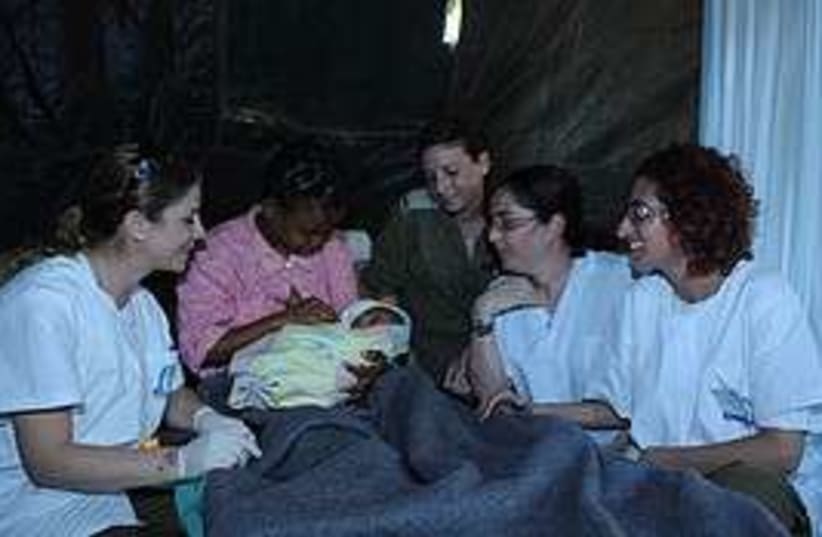When sending two jumb-jets of aid, and setting upa field hospital with hundreds of doctors, nurses and other medicalpersonnel is met with scorn, you know something isn't right.
Whilemost of the mainstream American and British news networks reportedextensively on Israel's reaction to Haiti's devastating earthquake,unfortunately we were also reminded just how entrenched some of theworld's hatred for the Jewish state really is.
While the fact that most of the Arab world donated merepennies, or nothing at all, has escaped mention, Israel's attempt tosave lives has been labeled by many as nothing but a PR exercise. Thesad truth is that the the anti-Israel hard left has done such a greatjob of dehumanizing Israelis, that the idea they could be doing gooddeeds is totally incomprehensible. It's true - Israel's actions inHaiti are creating good press, but that's what happens when you do goodthings.
The assertion that Israel should somehow have to apologize forcoming across positively is absurd, and grounded in anti-semitism. AsKevin Myers writes for the Belfast Telegraph, "They are perhapsthe only people in the world for whom extenuating circumstances areroutinely cited in explanation of their charitable deeds".
WHILE IT'S no surprise that the Islamist,anti-semitic Iranian mouth-piece Press TV accuses Israeli doctors ofusing the Haiti emergency to harvest organs, one should not expect toread the headline "Israel's double standards over Haiti," in Britain's Guardian newspaper,except, of course, in the comparison between Israel's efforts in Haitiand the efforts of any of Israel's neighbours. Unfortunately it comesas no surprise to those regularly inflicted with the Guardian's bias that the piece is, of course, in reference to Israel's treatment of Haitans and those it is at war with.
Israel's commitment to saving lives in disaster zones hasnothing to do with Gaza. Israel has shown its amazing commitment to thepreservation of life in India, Indonesia, Kenya and many other nations,Gaza war or no Gaza war. There is simply no comparison between theresponse shown to a people at the mercy of horrific natural events, anda people who have effectively been at war with Israel since its birth.
It'struly astonishing that part of the mainstream British press has founditself unable to differentiate between a helpless Haitian people indesperate need of aid, and the Palestinian people who elected aterrorist organization into power.
While no one in their right mind would deny thewidespread suffering of the Gazan people, drawing any moral equivalencebetween Israel's relationship with them and those trapped under rubblein Haiti is truly perverse. When the attitude toward Israel is sowidely based on anti-Semitism and hate, what evidence is there tobelieve things would change with an Israeli-Palestinian peaceagreement? For peace to be possible, Israel rightly has to believe thatits concessions and sacrifices would be met by more than continuedhatred, that peace with the Palestinians is also peace with the world.
As things stand, Israel is the only country in the world - barnone - that has to justify giving aid and saving lives. As long asIsraelis (or perhaps simply Jews) are viewed as incapable of doinganything good, in a sentiment propagated by so much of the world media,then Israel will be in no position to make concessions for peace.
No one is asking for the world to kiss Israel's feet for actswhich are in line with its own moral code, but when Israel providesmore per capita than any other nation in the world and is met withscorn, and the world's worst and wealthiest human rights abusers givenothing and are met with silence, well, something isn't right.
The writer has been a frequent observer of the UN Human Rights Council in Geneva, and is now based in the United Kingdom.
